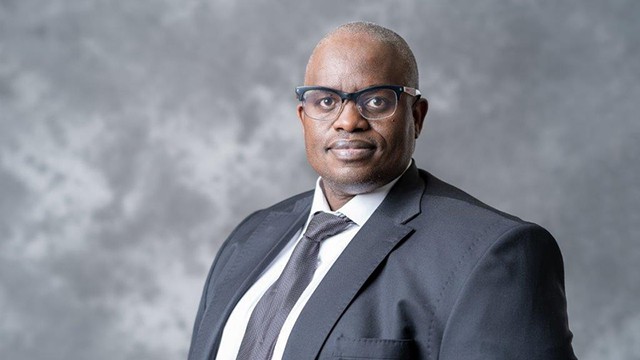Homeless is a reflection of a sick society
With the inclement weather conditions that South Africa has been facing in the recent past, most recently the icy, wet, and cold weather sweeping across South Africa’s provinces of the Eastern Cape, KwaZulu-Natal, and Gauteng causing distress to many communities, it has also focused the spotlight on the plight of the homeless.
Homelessness is a complex and multifaceted problem that is not limited to South Africa but is a global concern that demands our attention and, more importantly, demands action. Action not only on the symptoms that are visible but also on the causes that are beyond many of our understanding.
It is heart-breaking to see people living on the streets, often without access to the necessities of food, shelter, and healthcare. We barely pay them attention as they settle down for the night under bridges, in bus stops, or any other shelter they can find. They are the faceless pleas for help from the streets as we head out to our various daily destinations. We do not pay much attention to the daily challenges they may be facing.
However, as a society, it is our responsibility to extend a helping hand. We need to understand that homelessness is not merely a problem that affects the individuals who find themselves without a permanent place to call home; it is something that affects all of us, especially in the way in which we perceive and relate to the space occupied by people who are without homes. Often, the bridges and bus stops that become makeshift homes for the homeless transform into unwelcoming and hostile environments for the public due to instances of anti-social behaviour.
It is often the case that the homeless must live with mental and physical challenges to their well-being, and the lack of access to healthcare, education, and employment opportunities further perpetuates the cycle of homelessness, making it almost impossible for individuals to break free from its grip.
Homelessness is indicative of the deep-seated issues within our society that must be addressed. Our National Development Plan movingly speaks about a future South Africa where in 2030 “we say to one another I cannot be without you; without you, this South African community is an incomplete community. Without one single person, without one single group, without the region or the continent, we are not the best that we can be.”
Homelessness is a reflection of a sick society that has failed to provide the basic necessities for all its citizens. In this context, a sick society is one that is evident of the persistent wounds of inequality that seep through the fabric of our society. The increasing inequality, poverty, unemployment, socio-economic gap, unjust social hierarchies, systemic discrimination, tribalism, and racism all contribute to perpetuating and amplifying this illness, resulting in the marginalization and silencing of numerous individuals. The South African society resembles a battleground, a crime scene of historical injustice, filled with perpetual conflicts, hopelessness, and agony. Moreover, our society grapples with a pervasive mental health crisis. Many of us are silently battling unseen personal struggles. We are battling against depression, anxiety, and other mental conditions.
Our major cities of Johannesburg, eThekwini, and Tshwane are not immune to this reality, and the alarming increase in homelessness in Cape Town should serve as a wake-up call to all of us. It is a stark reminder of the socio-economic disparities that persist within our society, characterized by the highest income inequality, wealth inequality, consumption inequality, unequal development, and the highest unemployment and poverty in the world.
The lack of affordable housing, combined with insufficient social support systems, has forced numerous individuals and families onto the streets, where they grapple with survival daily. I firmly believe that united, we can make a positive impact together.
It is important to first raise awareness about homelessness and its underlying causes. Education plays a critical role in dispelling misconceptions and cultivating empathy and understanding towards individuals experiencing homelessness. We need to advocate for comprehensive policies that prioritize affordable housing options, improved social welfare programs, and increased access to mental health services.
The issue of homelessness reaches far beyond fundraising for shelters; it must incorporate support services. It is important to not only provide temporary shelter to people in need, but it is also essential to equip them with the tools and skills necessary to allow them to reintegrate into society and secure a stable future. Vocational training programs, job placement assistance, and mental health support can help break the cycle of homelessness and provide individuals with a chance at a better life. Destigmatizing homelessness is crucial in fostering compassion and understanding. As a society, we have the power to effect change. It is our collective responsibility to ensure that every individual has a place to call home; let us work together towards creating a more inclusive and compassionate society, where no individual is left without a roof over their head. Let us strive to make a positive impact on the lives of others and build a better future for all.
About the Author: Dr. Msizi Myeza is a Town Planner by profession and the Chief Executive Officer of the Council for the Built Environment. He writes here as a serving public sector official
Issued by:
Dr Msizi Myeza
Chief Executive Officer
Council for the Built Environment
Tel: 012 346 3985
Enquiries:
Ms Nosizwe Mokoena
Strategic Support and Engagement Specialist
Mobile : 078 415 9211
Email : nosizwe@cbe.org.za
Ms Sinah Ndala
Communications Associate
Mobile : 078 423 1942
Email : sinah@cbe.org.za

